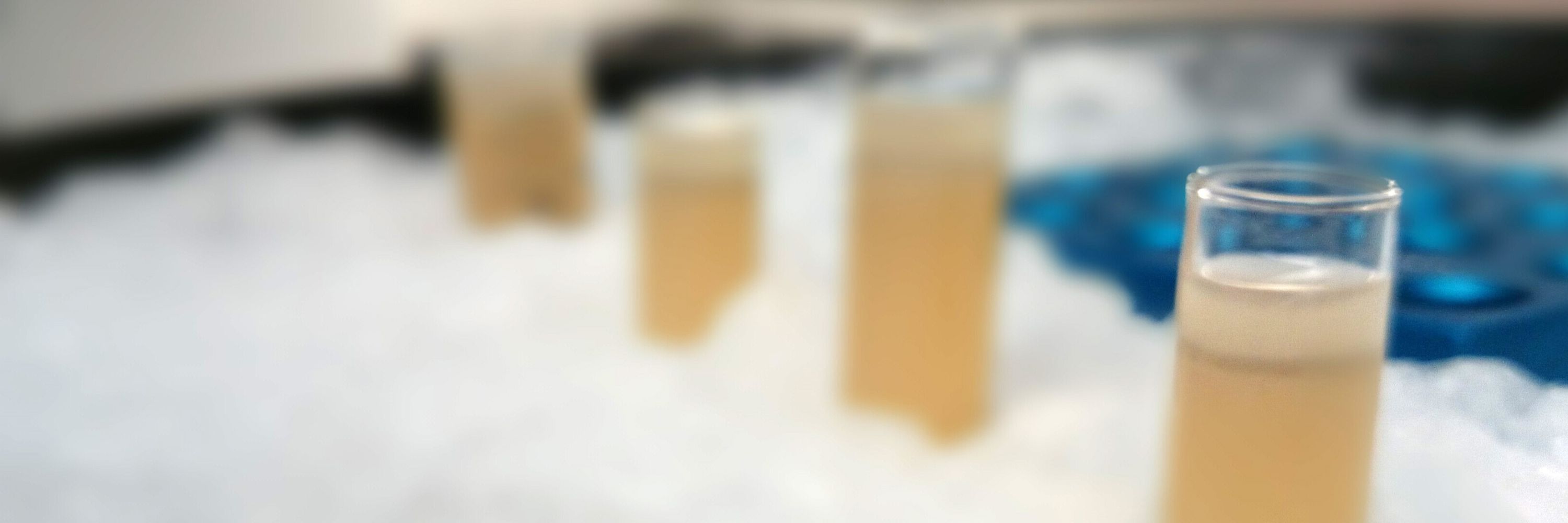
James Dewar
@jamesmdewar.bsky.social
Assistant professor, Vanderbilt University School of Medicine. Studying DNA replication & repair to understand biochemical mechanisms and environmental toxicology.
"Resolution of collapsed forks is separate from completion of DNA synthesis"
biorxiv.org/content/10.1...
"Rescuing bacterial genome replication: essential functions to repair a double-strand break and restart DNA synthesis"
biorxiv.org/content/10.1...
biorxiv.org/content/10.1...
"Rescuing bacterial genome replication: essential functions to repair a double-strand break and restart DNA synthesis"
biorxiv.org/content/10.1...
March 10, 2025 at 11:42 PM
"Resolution of collapsed forks is separate from completion of DNA synthesis"
biorxiv.org/content/10.1...
"Rescuing bacterial genome replication: essential functions to repair a double-strand break and restart DNA synthesis"
biorxiv.org/content/10.1...
biorxiv.org/content/10.1...
"Rescuing bacterial genome replication: essential functions to repair a double-strand break and restart DNA synthesis"
biorxiv.org/content/10.1...
Also
@heathmurraylab.bsky.social were absolutely AMAZING colleagues as we discussed our complementary studies and how to put them out to the community. We are incredibly grateful to have them as colleagues in the field!
March 10, 2025 at 6:22 PM
@heathmurraylab.bsky.social were absolutely AMAZING colleagues as we discussed our complementary studies and how to put them out to the community. We are incredibly grateful to have them as colleagues in the field!
March 10, 2025 at 6:22 PM
March 10, 2025 at 11:39 PM
Also
@heathmurraylab.bsky.social were absolutely AMAZING colleagues as we discussed our complementary studies and how to put them out to the community. We are incredibly grateful to have them as colleagues in the field!
March 10, 2025 at 6:22 PM
@heathmurraylab.bsky.social were absolutely AMAZING colleagues as we discussed our complementary studies and how to put them out to the community. We are incredibly grateful to have them as colleagues in the field!
March 10, 2025 at 6:22 PM
These differences make intuitive sense because helicase reloading proteins in bacteria are absent from vertebrates. Conversely, converging forks are common in vertebrates but rare in bacteria. Overall it looks like the response to fork collapse is shaped by evolution.
March 10, 2025 at 11:21 PM
These differences make intuitive sense because helicase reloading proteins in bacteria are absent from vertebrates. Conversely, converging forks are common in vertebrates but rare in bacteria. Overall it looks like the response to fork collapse is shaped by evolution.
In their study it was because re-loading of the replicative helicase was needed to restart synthesis. In our case it was because fork convergence was needed to generate a double-ended DSB.
March 10, 2025 at 11:21 PM
In their study it was because re-loading of the replicative helicase was needed to restart synthesis. In our case it was because fork convergence was needed to generate a double-ended DSB.
We were really surprised that D-loops in and of themselves did not efficiently restart DNA synthesis following fork collapse in vertebrates. However, @heathmurraylab.bsky.social came to the same conclusion independently in bacteria!
March 10, 2025 at 11:21 PM
We were really surprised that D-loops in and of themselves did not efficiently restart DNA synthesis following fork collapse in vertebrates. However, @heathmurraylab.bsky.social came to the same conclusion independently in bacteria!
Overall, our results indicate that resolution of replication dependent DSBs is separate from completion of DNA synthesis while revealing flexibility in how PARP inhibitors can induce fork collapse.
March 10, 2025 at 11:21 PM
Overall, our results indicate that resolution of replication dependent DSBs is separate from completion of DNA synthesis while revealing flexibility in how PARP inhibitors can induce fork collapse.
Similar events happen at simple SSBs (‘nicks’), CRISPR-Cas induced SSBs and abasic site SSBs. PARP inhibition can stabilize SSBs to promote fork collapse, but we find that this differs based on the composition of the underlying SSB.
March 10, 2025 at 11:20 PM
Similar events happen at simple SSBs (‘nicks’), CRISPR-Cas induced SSBs and abasic site SSBs. PARP inhibition can stabilize SSBs to promote fork collapse, but we find that this differs based on the composition of the underlying SSB.
We also discovered that “secondary collapse” events can take place. These involve extensive exonuclease degradation of the single-ended DSB to disassemble the divergent fork.
March 10, 2025 at 11:20 PM
We also discovered that “secondary collapse” events can take place. These involve extensive exonuclease degradation of the single-ended DSB to disassemble the divergent fork.
Fork convergence formed single-ended DSBs that were converted to double-ended DSBs and rapidly resolved by end joining. End joining was largely accurate and resulted in efficient completion of DNA synthesis.
March 10, 2025 at 11:20 PM
Fork convergence formed single-ended DSBs that were converted to double-ended DSBs and rapidly resolved by end joining. End joining was largely accurate and resulted in efficient completion of DNA synthesis.
Leading or lagging collapse induced single-ended DSBs that were efficiently resolved by RAD51 to form D loops. However, restart of DNA synthesis was not detected.
March 10, 2025 at 11:20 PM
Leading or lagging collapse induced single-ended DSBs that were efficiently resolved by RAD51 to form D loops. However, restart of DNA synthesis was not detected.
We analyzed the downstream consequences of fork collapse to understand how DNA synthesis is completed after a single-strand break (SSB) is converted to a double-strand break (DSB) by replication.
March 10, 2025 at 11:18 PM
We analyzed the downstream consequences of fork collapse to understand how DNA synthesis is completed after a single-strand break (SSB) is converted to a double-strand break (DSB) by replication.

